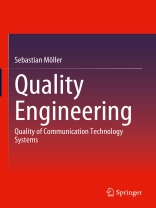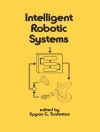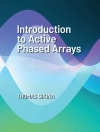This book deals fundamentally with the quality and usability of communication technology systems. To this end, the necessary terms are first introduced, and the fundamentals of psychophysics and psychometrics are established. Based on this, the cycle of human-oriented system development is presented. The measurement and prediction of quality and usability are then illustrated by practical examples of communication engineering systems. In particular, systems for information transmission (telephony, Vo IP, IP-TV), speech dialog systems, and multimodal dialog systems are discussed. Finally, models for estimating quality and usability in the development phase of such systems are presented.
The book is primarily aimed at readers with a technical background, for example in computer science, information technology, or electrical engineering. In addition, however, readers from linguistics and communication sciences, acoustics, sociology, human factors, and other fields of knowledge areequally addressed. It does not presuppose any special previous knowledge.
This book is a translation of the original German 2nd edition Quality Engineering by Sebastian Möller, published by Springer-Verlag Gmb H Germany, part of Springer Nature in 2017. The translation was done with the help of artificial intelligence (machine translation by the service Deep L.com). A subsequent human revision was done primarily in terms of content, so that the book will read stylistically differently from a conventional translation. Springer Nature works continuously to further the development of tools for the production of books and on the related technologies to support the authors.
Table des matières
Motivation and objectives, quality and usability.- Basics of psychophysics and psychometrics.- Scaling.- Usability engineering.- Quality of speech and audio transmission systems.- Quality of video transmission systems.- Quality of speech dialog systems.- Quality of multimodal systems.- Quality prediction.
A propos de l’auteur
Sebastian Möller (*1968) is an expert in quality and speech technology. He studied electrical engineering at the universities of Bochum, Orléans (France) and Bologna (Italy). From 1994 to 2005, he was a research associate and later a university lecturer at the Institute for Communication Acoustics (IKA) at the Ruhr University in Bochum, where he worked on speech signal transmission, speech technology, and communication acoustics, as well as on aspects of the quality of speech-based systems. He habilitated at the Faculty of Electrical Engineering and Information Technology at Ruhr University Bochum in 2004, and from 2005 to 2015 he headed the Strategic Research Lab Quality and Usability at Telekom Innovation Laboratories. In April 2007, he was appointed Professor at TU Berlin for Quality and Usability, and has been Dean of the Faculty of Electrical Engineering and Computer Science at TU Berlin since 2017. He worked as Visiting Fellow or Visiting Professor at MARCS Auditory Laboratories, University of Western Sydney in Australia, at Universidad de Granada (Spain), at Ben Gurion University of the Negev in Be’er Sheva (Israel), and at NTNU in Trondheim (Norway). Since 2012, he has been an Adjunct Professor at the University of Canberra (Australia).












